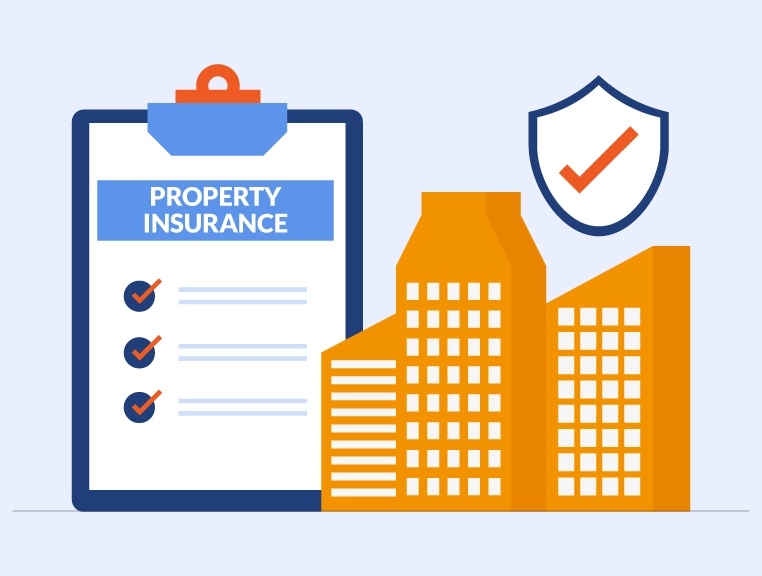An all-risk property insurance policy means that the policy will cover everything, except the perils which are clearly listed under the exclusion head. It means, that if something does not specifically exclude from the all-risk property insurance policy, the insurer would cover it.
Often known as a comprehensive insurance policy, an all-risk property insurance policy offers you coverage in the event of those losses or damages which arise due to perils that you do not anticipate, i.e., those perils which do not fall under the named peril list. When you file a claim, the property insurance company evaluates whether losses or damages are a result of events. It comes under exclusion head or not. If they are not, the insurer will offer the coverage.
Some of the coverages which are available under the all-risk property insurance policy are burglary, fire, machinery breakdown, explosion, business interruption due to loss of fire, business interruption due to the breakdown of machinery, etc.
Here, as the insurance coverage is extensive, the all-risk property insurance policy is costlier than the named perils insurance policy.
Read More: Who can take the construction all-risk policy?
Though the all-risk property insurance offers comprehensive cover; there are certain events that do not cover under the policy, like –
- Deprecation or wear & tear
- Mechanical or electrical breakdown
- War and nuclear perils
- Loss or damages which happen during dyeing, cleaning, repairing, or restoring
- Scratching, denting, or brittle substances
An all-risk property insurance policy comes with a compulsory deductible. It means at the time of claim; the insurer will not settle the entire claim amount, and the policyholder would have to pay a certain portion. It is called the compulsory deductible. A policyholder can voluntarily opt for a higher voluntary deductible and get lower premium rates. As the policyholder agrees to share the portion of the claim, the insurer rewards him/her with easy premium rates.
In the case of an all-risk property insurance policy, the insurer computes the sum insured as per the market value of the property. Further, it is feasible to extend the policy to cover electrical and mechanical breakdown events by paying an extra premium.
If a loss or damage happens, it is necessary for the policyholder to inform the insurance company immediately. Also, the policyholder should take all the steps to curtail the damages and recover the missing property. It is necessary to inform the police if the loss is due to theft, burglary, or willful damage.
It is essential to carefully read the all-risk property insurance policy to understand the fine print so that you can easily comprehend what is not included in the policy.
Read More: How to calculate the premium in construction all risk policy?
Case: All-Risk Property Insurance Policy
After working as a mechanical engineer with J.K Engineering, Ravish started his own business in Pune. He bought an office in one of the companies and started his business with 80 employees working under him. Considering the risks which could arise in the business, he also purchased an all-risk property policy. It promised to offer comprehensive coverage against various kinds of losses or damages, like fire, burglary, explosion, etc. He paid an extra premium to get coverage for an electrical and mechanical breakdown as well.
As it is all-risk property insurance, therefore, the insurer agrees to give comprehensive coverage and cover all the perils, provided they do not fall under the exclusion head.
It means Ravish’s property insurance policy would give comprehensive coverage and cover all those risks or perils which are not listed in the exclusion head.
In case of any loss, Ravish can approach the property insurance company would appoint a surveyor to inspect the extent of losses or damages. In case the loss would happen due to perils that are not in the exclusion head. The insurer would come forward and cover it as per the sum insured available under the property insurance policy.
About The Author
Shivani
MBA Insurance and Risk
She has a passion for property insurance and a wealth of experience in the field, Shivani has been a valuable contributor to SecureNow for the past six years. As a seasoned writer, they specialize in crafting insightful articles and engaging blogs that educate and inform readers about the intricacies of property insurance. She brings a unique blend of expertise and practical knowledge to their writing, drawing from her extensive background in the insurance industry. Having worked in various capacities within the sector, she deeply understands the challenges and opportunities facing property owners and insurers alike.




